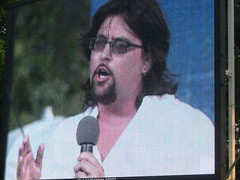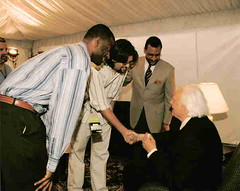Malcolm Gladwell on Rick Warren
Churches, like any large voluntary organization, have at their core a contradiction. In order to attract newcomers, they must have low barriers to entry. They must be unintimidating, friendly, and compatible with the culture they are a part of. In order to retain their membership, however, they need to have an identity distinct from that culture. They need to give their followers a sense of community--and community, exclusivity, a distinct identity are all, inevitably, casualties of growth.
But there is another approach: to create a church out of a network of lots of little church cells--exclusive, tightly knit groups of six or seven who meet in one another's homes during the week to worship and pray. The small group as an instrument of community is initially how Communism spread, and in the postwar years Alcoholics Anonymous and its twelve-step progeny perfected the small-group technique.
For the first three months, he went from door to door in the neighborhood around his house, asking people why they didn't attend church. Churches were boring and irrelevant to everyday life, he was told. They were unfriendly to visitors. They were too interested in money. They had inadequate children's programs. So Warren decided that in his new church people would play and sing contemporary music, not hymns. (He could find no one, Warren likes to say, who listened to organ music in the car.) He would wear the casual clothes of his community. The sermons would be practical and funny and plainspoken, and he would use video and drama to illustrate his message. And when an actual church was finally built-Saddleback used seventy-nine different locations in its first thirteen years, from high-school auditoriums to movie theatres and then tents before building a permanent home--the church would not look churchy: no pews, or stained glass, or lofty spires.













0 Comments:
Post a Comment
<< Home